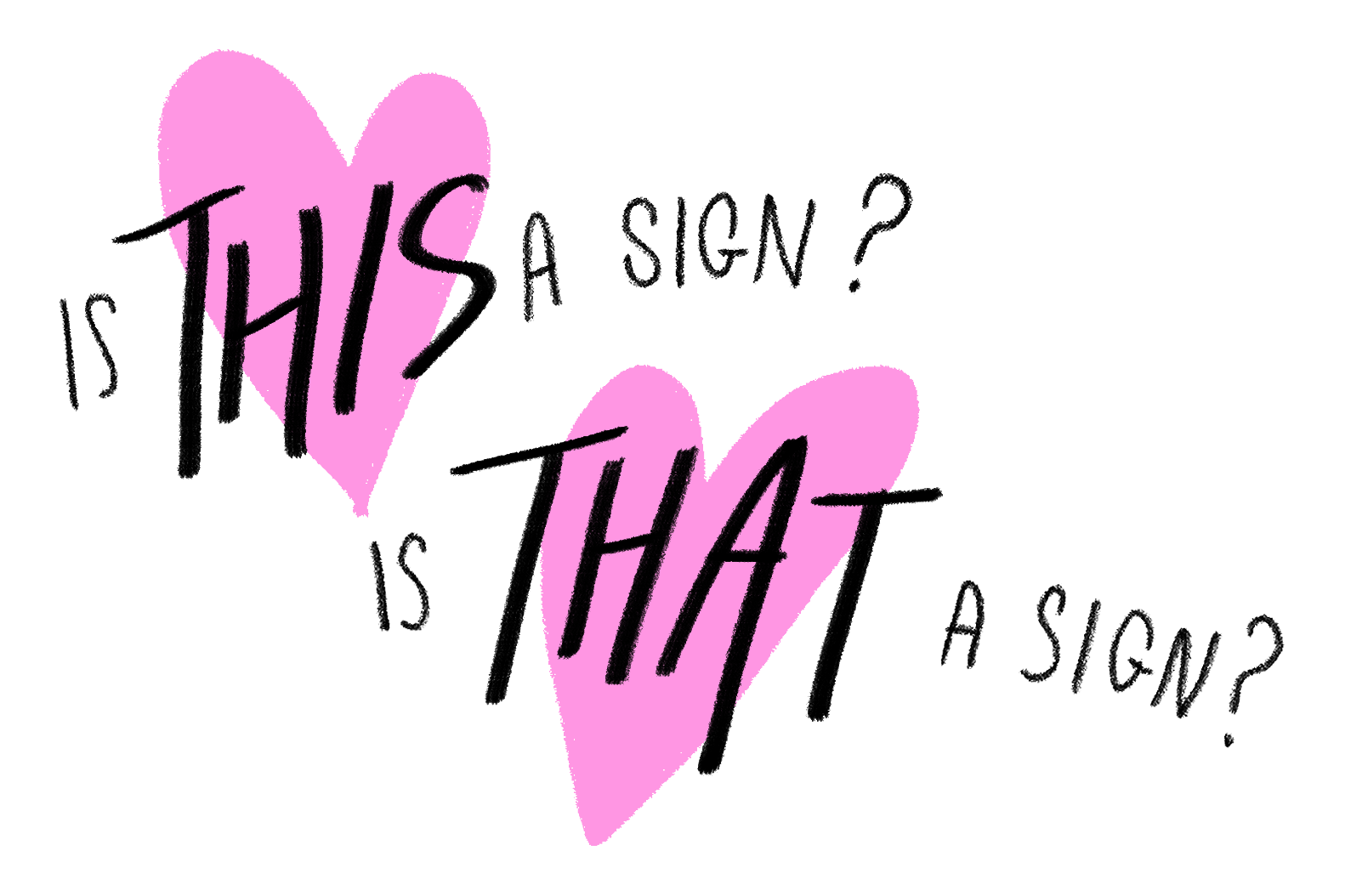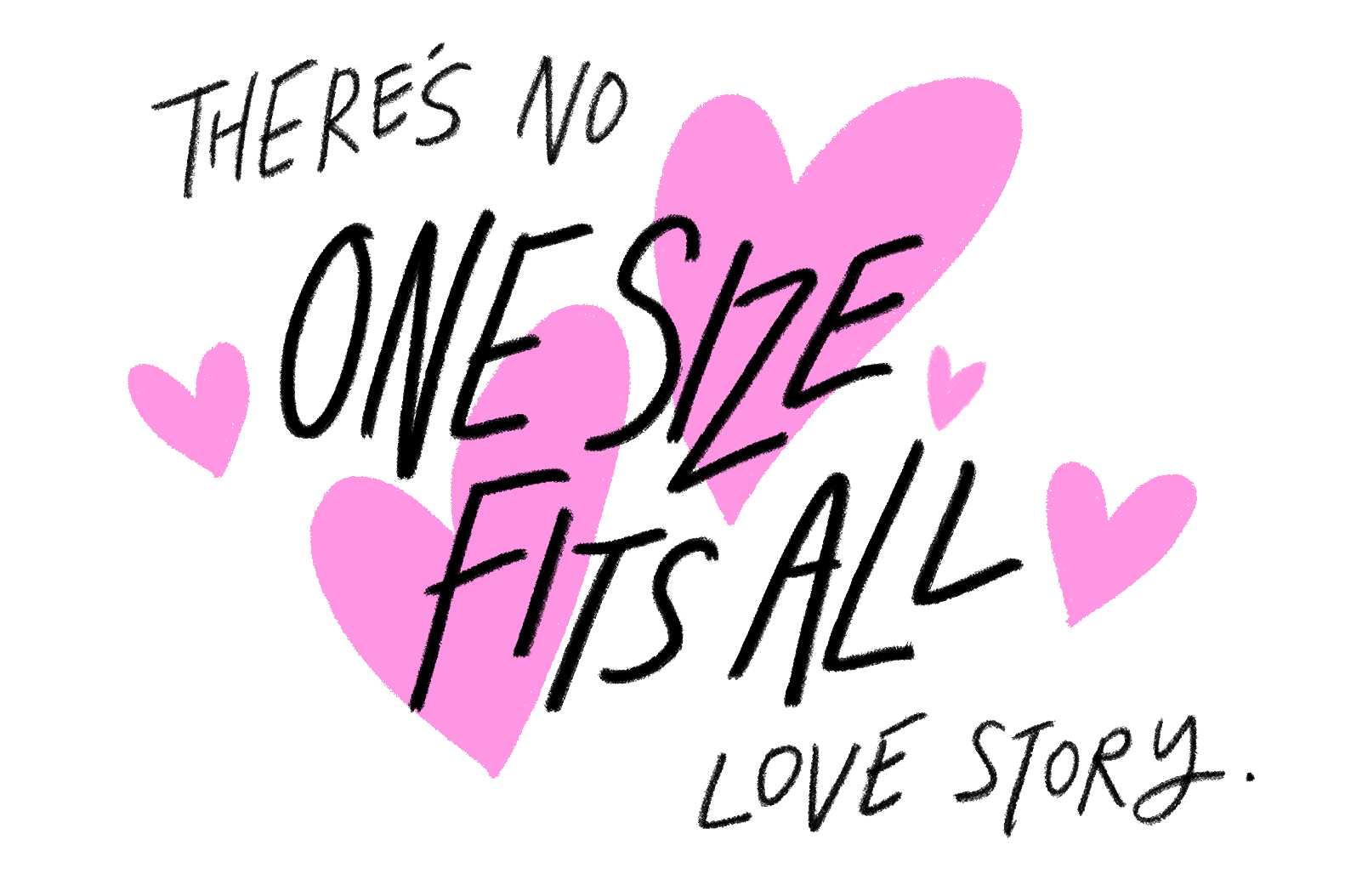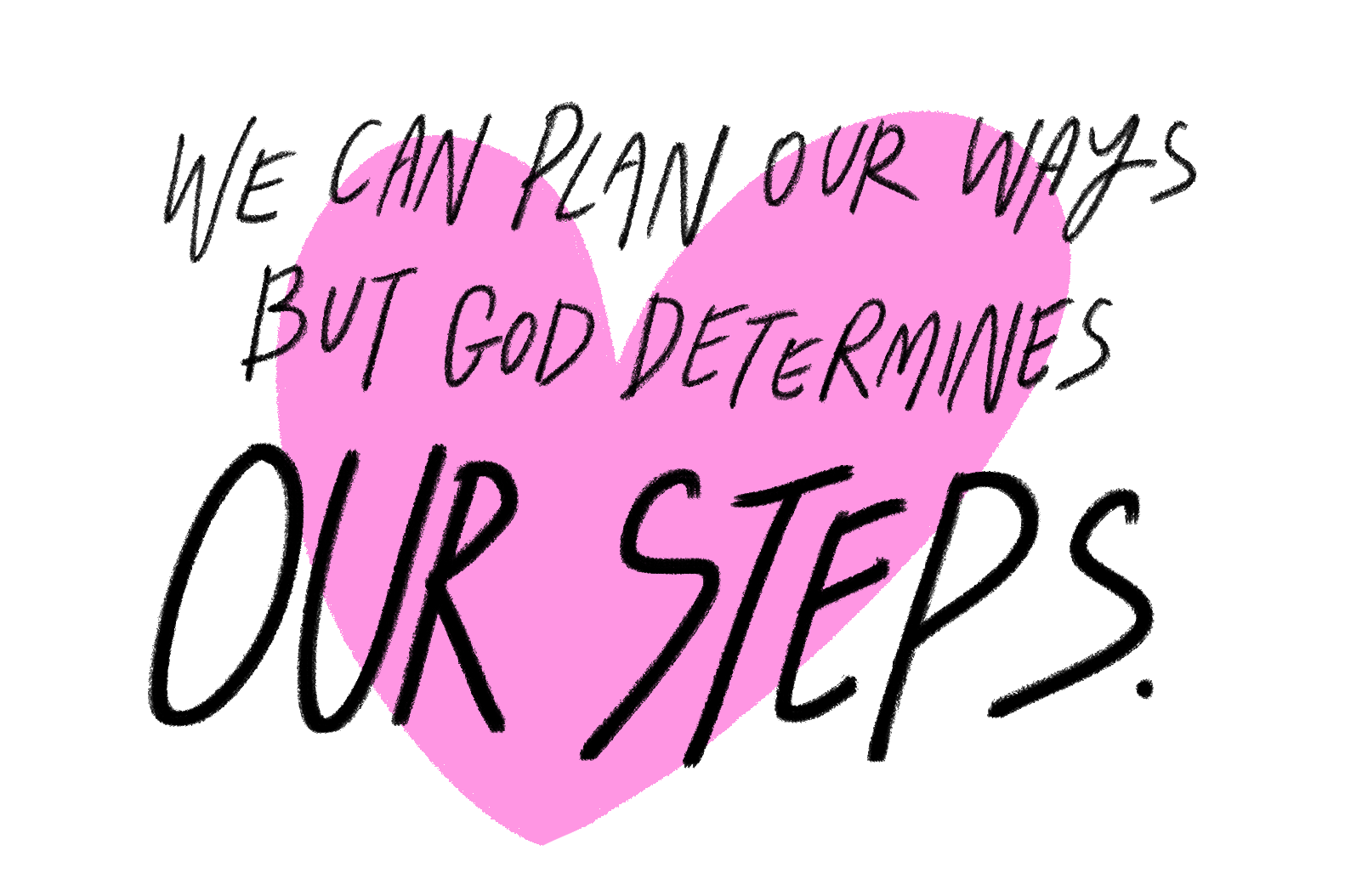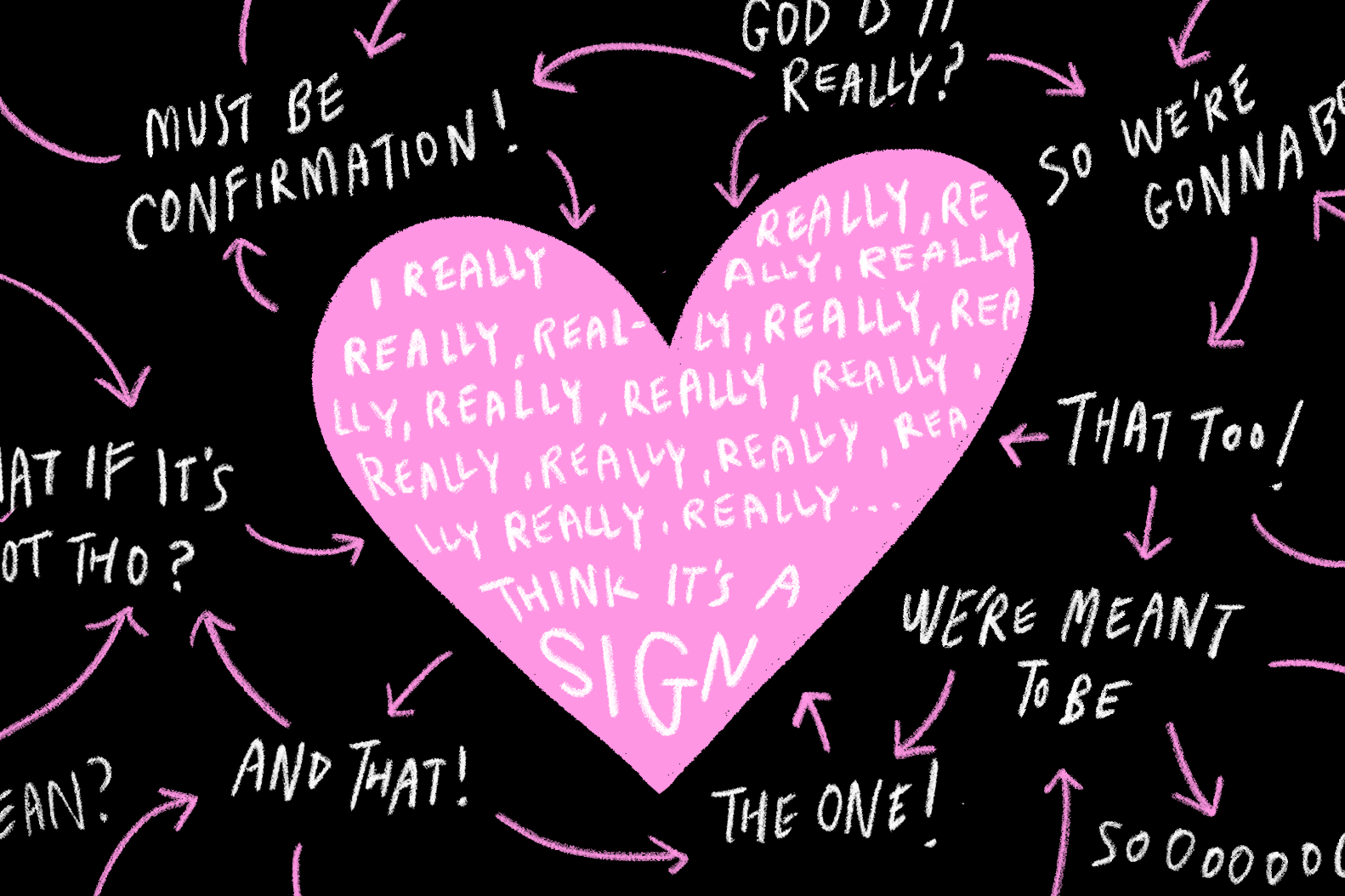In Bible College (or “Bridal College” as it’s also known), I was asked out on a date by a guy whom I had clearly stuck in the friend-zone list.
But my friends encouraged us to be together because we were “so perfect for one another”. And he seemed to be everywhere I happened to be — surely this was a “sign” from God.
So, a few weeks later, I told him that “yes”, I was willing to go on a date with him.
My friends rejoiced and told us that we would end up together forever, and we’d write amazing, God-inspired music together.
We dated for three whole months before he dumped me, leaving me absolutely devastated. It took me almost an entire year to recover from my first official and shortest-lived relationship.
“But God told me it was okay?” I cried to a listening ear. “Why would He tell me it was okay if it wasn’t? He had sent me signs and even gave me Scripture!”
Why we over-spiritualise our love lives
This wasn’t the first time I had prayed asking God to show me whether the guy was “the one” for me or to give me “signs” if this was the person I should be dating.
There were two other guys in the past, and I had prayed fervently to God and saw “signs” confirming they were “the ones” for me — but they both ended up with someone else.

Over time, I came to see several reasons why young Christians can be tempted to over-spiritualise their love lives and fall into a sense of despair or paralysis.
In part, there is a real sense of shame associated with dating “too many” people. I recall snide comments and whispers made about a girl I knew who dated two boys over a single year. People wondered if she took dating seriously enough and had equated her curiosity about compatibility with sin.
Many believe that much of this stemmed from the unhealthy culture that had formed due to certain popular Christian books that were espousing a particular way of dating; it wasn’t that these books were completely wrong, but they did contribute to this idea that the number of people you’ve gone out with correlates to how “holy” or “pure” you are.
So, in some church sub-cultures, youth and young adult ministries have created this version of dating to marry, where if you don’t marry the first guy or girl you date, you must have not been listening to God, or you’ve made a mistake somewhere somehow.
And in some cases, if you decide to resort to online dating, that’s also seen as a failure.
Within some circles (at least the ones I know of), it’s very normal to have someone throw out the “M” word the moment you’re officially boyfriend and girlfriend — even if it’s just been weeks of you becoming official.
Good Christian singles who don’t want to screw up
Because of all these expectations and “unspoken” rules about dating, young Christian singles who are desperate not to “screw up” and go on a date with anyone who isn’t their “future spouse”, end up either total frozen in indecision or else emotionally battered when a relationship doesn’t quite work out.

I recall hearing of a couple who took turns crushing on one another for years before finally going on a single date.
Afterwards, they met up to debrief how the date went (Did it meet their expectations? Was there a future in their relationship after all?), and overwhelmed by the unknowns and uncertainties that dating entails, retreated into their separate holes and haven’t been out together (or with anyone else) since.
Another time, I heard a daunting statistic from the young adults’ pastor at my local church. Around 80 percent of the 18-to-30-year-olds were single. This wasn’t saying that being single is bad (because it isn’t!), but these young adults were reportedly unhappily single, too scared to ask anyone out, and just quietly pining for a mate.
It seems like singles are so desperate to follow Songs of Solomon 8:4, “Daughters of Jerusalem, I charge you: Do not arouse or awaken love until it so desires”, thinking it’s code for, “Don’t let yourself develop feelings for the guy until he’s your future husband.”
And yes, Proverbs 4:23 also says we’re to guard our hearts, but these verses don’t mean that we look for the big billboard sign that’ll point us to “the one”.
We want a “biblical” wedding
Some of us have fallen into the trap of wanting a “biblical” wedding.
But the thing is, relationships are a bit “weird” in the Bible, and while the intention to marry and the eventual union of marriage is straightforward, a sacrament, and a beautiful allegory of Christ and the church, the logistics of how you get there isn’t something we can cut-and-paste straight out of Scripture.
At the end of the day, marriage involves two people trying their best to love one another in the way God intended for this relationship dynamic — which is, ultimately, to illustrate His love towards us.
Isaac met his wife because his dad sent a servant to go find a girl in their old homeland and she had to be one who offered the servant’s camels water (Genesis 24).
David met one of his wives Abigail because she helped smoothen over relationships between him and her previous husband, before her previous husband was struck dead (1 Samuel 25).
Jacob met his wife by spotting her, falling in love at first sight, then getting tricked by her father into marrying the older, slightly less pretty sister, before waiting and working another seven years to marry the girl he wanted in the first place (Genesis 29:1-30).

These stories are a long, long way from the “engaged in a year, married in three months” model that some of us are taught to idolise.
And as much as we’re fascinated about what these marriages in the Bible may have to teach us, for the most part, the marriages were just… marriages that were recorded in the Bible — as narratives, not as fables with morals or instructions.
At the end of the day, marriage involves two people trying their best to love one another in the way God intended for this relationship dynamic — which is, ultimately, to illustrate His love towards us.
We want perfection
Sometimes, I wonder if our aversion to things going wrong is because we hold tightly to the expectation that everything needs to work out perfectly. Perhaps we have developed and are stubbornly holding onto a worldview that doesn’t exist in Scripture.
I would argue that many of us Christians (myself included) have developed a dislike for long roads. We don’t like downs, we only like ups. We want the path to which God has called us to be free of U-turns or detours, even if a scenic one. The best is a shortcut that lets us get to the “destination” in the shortest time possible.
This mentality then translates to how we approach dating: if we’re doing it right, we won’t have to go on many dates to find “the one”. If we find the perfect boyfriend/girlfriend, they’ll become the perfect spouse, and we’ll have a good marriage, and everything will work out.
I’m not saying that we should be careless and nonchalant about dating, or complacent about boundaries and purity.
But maybe, just maybe, we need to get comfortable with the idea that we are human, we aren’t perfect, just as our potential love interest is likewise human and not perfect.
We “fictionalise” our love lives
At this point, I want to suggest it’s also possible that we are attempting to fictionalise our love lives—we expect them to be straightforward. Then when things get complicated, we equate it with sin or God’s judgment because we got it wrong.
Sometimes, I think in our love lives, we need the same challenge. Instead of looking for signs, we need to ask for wisdom and practice discernment. We need to learn to be sensible.
Most of us are desperate to live our lives as if it’s played out like a movie or a book. We’ve come to terms with our understanding that life (and everything it holds) won’t be perfect, but a part of us holds on to that hope that life can and should imitate art.
Recently, I was seeking to fictionalise my life. My husband looked at me and told me to stop overthinking the decision I was stressing over.
“Are you sinning?” he asked me. “No? So just take the step. Stop overthinking.”
Are you sinning? No? Just take the step and stop overthinking. So, go and ask the person you fancy out for a coffee, you don’t have to know if you will tie the knot in the future.

Friend, life can be non-linear, and sometimes things don’t work out how we expect them to, but they can still result in unexpected and beautiful outcomes.
And perhaps, we do not need to fear the long roads and view them as a sign of God’s lack of provision and sovereignty, but instead as an interaction of our free will and God’s engagement of that.
I love Proverbs 16:9, which says we plan our way in our hearts, but God determines our steps. We can trust Him, without being so scared of screwing up and finding ourselves trapped in paralysis.
God has wonderful things planned for our lives and in the end, it’ll all be part of His story.
This article was first published on YMI and is republished with permission.
- What are some ways you might over-spiritualise your dating journey or relationship?
- What is one practical thing you can do to date and love in a way that’s more aligned to God’s Word?
- What are some verses or biblical principles you can meditate and anchor on as you do this?










